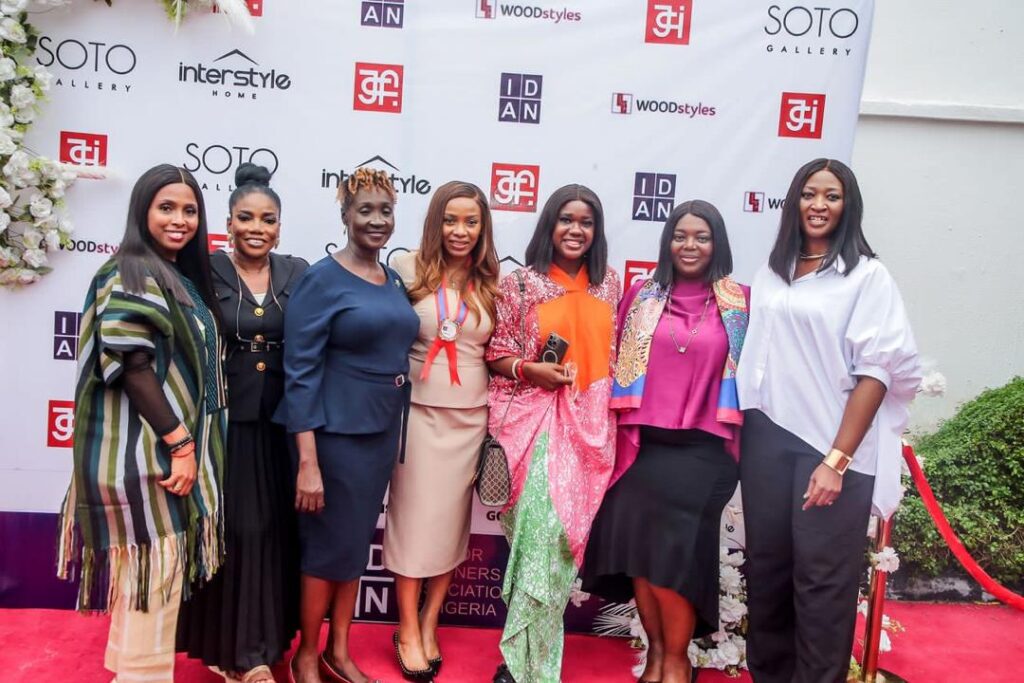The Interior Designers Association of Nigeria (IDAN) has officially inaugurated its new National Executive Council, ushering in what stakeholders have described as a transformative era for the Nigerian interior design industry. At the swearing-in ceremony held in Lagos, Jacqueline Aki was named President, leading a dynamic team of professionals—collectively referred to as “The Titans”—tasked with steering the association toward innovation, inclusivity, and sustainable development.
Speaking at the event, Mrs. Tola Akerele, Chief Executive Officer of the National Arts Theatre and member of IDAN’s Board of Trustees, emphasized the strength of the newly constituted executive team. “They are a strong, policy-driven team committed to good governance,” Akerele said. “This new leadership will not only enhance public understanding of the interior design profession but will also foster knowledge-sharing and quality decision-making across the industry.”
Akerele also highlighted the functional and aesthetic significance of design, pointing out the depth of detail and client collaboration required for effective spatial solutions. “Design is not just about beauty; it’s about how people live, move, and experience space,” she noted.
In her address, Chairman of the Board of Trustees, Mrs. Ekua Abudu, praised the new leadership’s forward-thinking agenda. “Jacqueline Aki’s presidency marks a turning point. It is a catalyst for change—rooted in innovation, diversity, and sustainability. These are the cornerstones for positioning Nigeria as a key player in the global design ecosystem,” she said.
The inauguration ceremony also unveiled a Flagship Impact Initiative, a design-led program intended to showcase the social and human value of interior design in real-world settings. The initiative will enhance regional participation through digital onboarding tools, localized member support, and increased engagement opportunities.
Newly elected President Jacqueline Aki described IDAN membership as “a professional anchor,” assuring stakeholders that the new administration will prioritize mentorship, career development, and international exposure through curated events and strategic partnerships. While acknowledging that the current council is made up entirely of women, Aki reaffirmed the group’s commitment to inclusivity: “We are building something intentional. This is a legacy move rooted in collaboration, culture, and clarity.”
Under Aki’s leadership, the council aims to elevate the Nigerian interior design sector by focusing on three foundational pillars—Structure, Visibility, and Advocacy: Structure: The association will implement structural reforms including revised membership pathways, targeted capacity-building programs, and enhanced regional support mechanisms.
Visibility: IDAN plans to increase awareness through strategic media engagement, impactful storytelling, and purposeful public relations campaigns.
Advocacy: The council will work closely with educators, regulators, and allied professionals to influence policy, expand educational offerings, and integrate design into national development goals.
Immediate steps include the rollout of new membership categories and progression routes tailored for decorators, designers, and firms at all stages of their careers.
In a related interview, IDAN Founder Titi Ogufere revealed plans to further institutionalize the profession. “We are advocating for a legislative bill to regulate the industry,” she said. “To that end, we are launching the Institute for Professional Designers and Product Inventors, which will distinguish certified practitioners from unqualified individuals.”
Ogufere also addressed the perception of interior design as a luxury service. “Yes, many designers focus on high-end products, but we’re working to democratize access,” she said. “Through our Incubator Program, we are encouraging designers to create more affordable solutions by setting price ceilings and supporting emerging talent.”
As Nigeria’s design industry enters this new chapter, stakeholders are optimistic that the leadership of Jacqueline Aki and the new executive team will catalyze a broader transformation—one that positions interior design not just as a profession, but as a strategic tool for national development, cultural expression, and economic growth.















